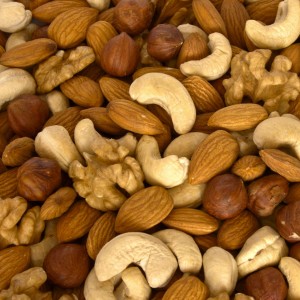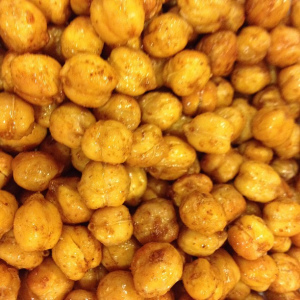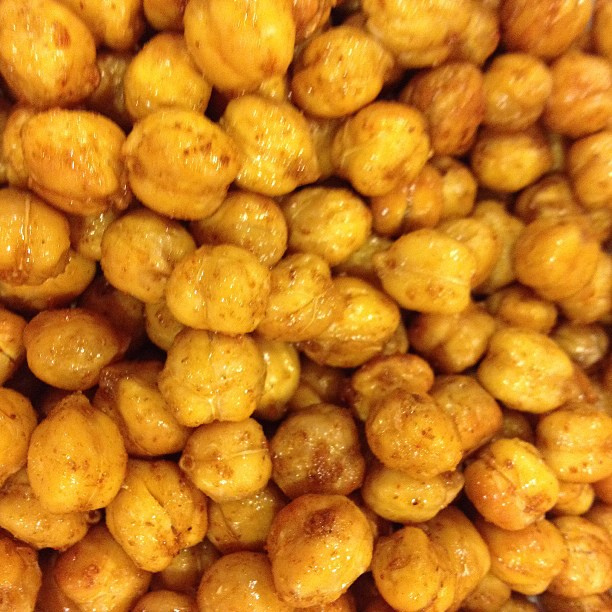Many people benefit from eating every 3 to 4 hours. A great way to be sure your body is getting the energy it needs is to eat a mid-morning and/or afternoon snack. Snacks are generally smaller and lighter than meals, but look for ones that are nutrient-rich. Nutrient-rich means that the food is concentrated in vitally important vitamins, minerals, antioxidants, phytonutrients, fiber, and energy.
Many of these items can be mixed and matched. For instance, add some almond butter to your apple or swap the tortilla for gluten free crackers for your avocado salsa. Adding enjoyment and variety to your snacks makes them more enjoyable for you and also adds different nutrients to your diet. Also, be sure to consider your own biochemical individuality—what works for YOUR dietary system and nourishes YOU—when choosing healthy snacks!
Nuts or seeds like almonds, walnuts, sunflower seeds or pumpkin seeds—raw & unsalted (1/4 cup = 1 serving)
Nutrition: Good source of protein & healthy fats; also good sources of fiber, calcium, magnesium, manganese, zinc, folate, vitamin E, & B vitamins; varies depending on nut/seed.
Tips: Remember that 1/4 cup is a serving size, so enjoy but do not over-‐indulge. Many people find nuts and seeds easier to eat and digest if they have been soaked or sprouted first.
Hummus or other healthy dip and veggies (carrots, celery, red bell pepper, broccoli, radish or pea pods)
Nutrition: Fiber, phytonutrients, & vitamin C. Carrots are also a great source of vitamin A, K, biotin and fiber. Celery is a good source of potassium, and vitamins B6 & B1.
Tips: These are easy to pack ahead of time and make for a yummy, crunchy snack. For some other healthy dip ideas, check out this artichoke dip or this olive pistachio dip or this vegan pesto!
Almond butter and whole-grain, seeded crackers like Mary’s Gone Crackers (2 T. almond butter & about 7-10 crackers)
Nutrition: For benefits of almond butter, see nuts/seeds above. Whole-grain crackers are higher in fiber & other minerals than crackers made with enriched flour.
Tips: Look for crackers without a lot of additives and ingredients; simple is best.
Whole grain or corn tortilla, avocado and salsa
Nutrition: Avocados are good sources of fiber, vitamin C, E, K, folate & potassium. Tomatoes are great sources of vitamin C, biotin vitamin K, carotene & lycopene.
Tips: Use about a ½ avocado in a serving. For the other half, leave the pit in the fruit and place in the refrigerator in a sealed container—it will keep for the next day.
Fruits like apples, oranges, berries, plums, or pears
Nutrition: Good amounts of antioxidants, fiber, phytonutrients, vitamin C; amounts vary depending on the fruit
Tips: It sounds so simple but fruits with a high fiber count can be quite filling and refreshing as a snack. Can pair with some almond butter for some added fat and protein.
Roasted seaweed
Nutrition: Good source of vitamins A and C and iodine.
Tips: This delicious snack is a great way to add sea vegetables to your diet. Great as an after-workout snack! The iodine in seaweed can help regulate hormones like estrogen and thyroid.
Roasted chickpeas
Nutrition: Excellent source of phytonutrients, molybdenum and manganese. They are also a very good source of folate and copper as well as a good source of dietary fiber, phosphorus, protein, iron, and zinc
Tips: Make these yourself because the ones in the store are usually full of added sugar. For an easy recipe, check out here or here.
Edamame
Nutrition: High in protein and low in fat; good source of fiber, thiamin, iron, magnesium, phosphorus and copper, vitamin K, folate & manganese.
Tips: You can get shelled edamame in the frozen food section of most stores. Add soy sauce, tamari or Bragg’s if you want some flavor. If you have thyroid issues or a food sensitivity to soy, you will want to avoid soy products.
Baked kale
Nutrition: Good source of vitamin A, vitamin C, calcium, and potassium.
Tips: Great for if you want something crunchy and savory with the benefits of kale. Easy to make yourself or can get at the store.

